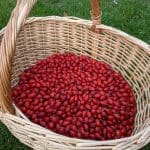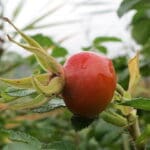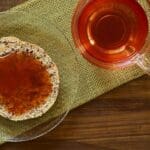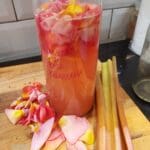Rosehips can be used as a substitute for many things, from tomatoes all the way to peaches, in this Rose Hip Bellini recipe we use it as a substitute for peaches in a classic bellini. It’s super quick and super simple to make and is a fantastic summer tipple..
Click here to see our Rose Foraging Guide
Ingredients:
per person
- 40ml Rosehip Syrup (2 shots) – blended rose hip, strained through cloth & add 40% sugar
- Prosecco
Click here to see our Rose hip syrup recipe
Method:
- In a champagne glass (or tumbler if you’re on it) pour in the Rose hip syrup
- Top up with prosecco – slowly as the first bit will bubble like crazy
- Using a small spoon give it a very gentle stir to mix together
Click here to see all of our Rose Recipes
References
Find more about Rose Hip medicinal benefits













Leave a Reply
You must be logged in to post a comment.